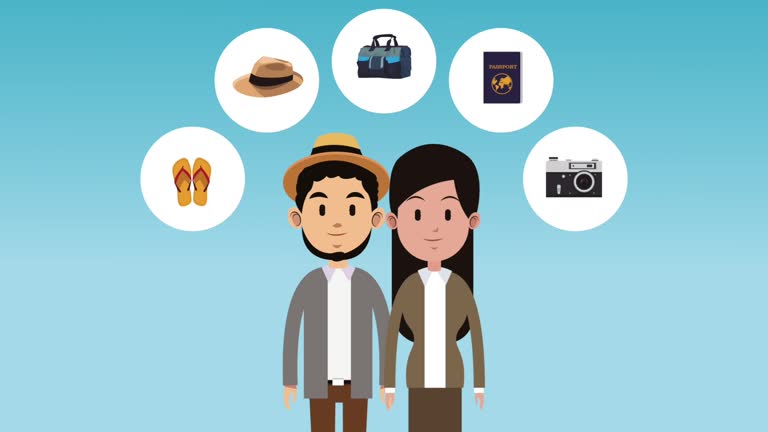Cultural Etiquette Tips for Travelers
Travelers gain exceptional opportunities to join diverse cultures start interactions with people and discover incredible fresh perspectives when they travel. Travelers should research local professional customs before they visit any country because appropriate knowledge helps create a positive interpersonal exchange with regional inhabitants. Actively communicating with the people in that foreign nation will help you recognize several basic cultural errors stemming from different traditions and social practices. Each piece of information in this guide will transform your tour experience into something pleasurable while earning you honor for visiting those countries.
The Importance of Cultural Etiquette for Travelers
Every nation possesses specific cultural practices that stand higher than ordinary behaviors in the regions from which you come. The explorer should respect the cultural identity of their foreign destination despite its novelty as an adventure. Follow these practices because they build a favorable reputation while offering valuable chances to develop mutual relationships with local people during your stay. Understanding cultural etiquette enhances your admiration for local customs thereby making the trip more valuable.

Intercultural adaptations require their approach based on specific tactics starting with discovering area-specific greetings. The local community interprets a handshake as an essential ritual that demonstrates how they will treat an individual when they enter their social network. In Japan, people use bowing as a greeting expression yet handshaking maintains its status as the primary form of greeting throughout Western cultures. Understand these practices and you will have better integration resulting in less risk and thus gaining greater acceptance from others.
People possessing dyslexia conduct their communication differently from those who do not have the disorder. Every nation features residents who display directness but different countries also maintain residents who tend to behave reservedly. One needs to understand these kinds of social aspects so one can avoid encountering blunt socialization lessons.
2. Learn the Appropriate Dress Code
Travelers must understand their clothing affects the perception of people from different cultures. Several communities throughout the world view conservative dressing positively while perceiving skin exposure as vulgar. Tourists desiring to enter religious or sacred areas need to follow specific dress requirements that certain sites enforce.
The process of researching local dress codes shows that tourists maintain respect toward foreign cultures. Wear the most modest attire you can during uncertain situations while maintaining clothing for various situations.
3. Respect Local Dining Etiquette
Taking food plays a vital role in every ethnic group and that is why proper meal manners form key behavioral norms across all cultures. A cultural learning curriculum typically features ordinal numbers alongside greetings and several popular phrases in the country together with proper dining procedures. In Asian cultures, the practice of slurping indicates great enjoyment of food to the chef and is seen as polite but this behavior could be seen as improper in Western dining traditions. The Middle Eastern culture accepts right-handed eating since they consider the left hand to be unclean.
Acquiring this information enables someone to prevent situations that could lead to host-related offenses during dining events. The most proper approach when uncertain about dining practices consists of asking directly because it shows respect toward the other participants.
4. Especially On Personal Space and Avoidance of Any Forms of Contact
People maintain diverse boundaries for personal space across different cultures worldwide. Some cultural settings require physical closeness to a person during communication yet other cultures need distancing between people who talk. Different societies use various forms of para-verbal contact including both proactive handshakes and hugging and even kissing actions. In France and Italy greeting with the cheek-kiss works between strangers yet the Japanese society maintains complete public distancing in showing affection.
Knowing the cultural differences along with appropriate non-offensive behaviors toward people will help you prevent self-embarrassing situations.
5. Observe Local Tipping Practices
Tipping exists as a widespread practice in numerous nations of the world yet each country will demonstrate its own particular rules regarding tipping customs. Tipping takes various forms between cultures because some societies view it as customary gratitude whereas others view it as price modification or consider it unacceptable. American customers follow the practice of tipping restaurant staff 15-20% yet this tradition is foreign to Japan where such behavior remains unacceptable.
Finding out the traditional tipping practices of each destination will help you facilitate appropriate tipping amounts.
6. Understand the Importance of Time
The understanding of time differs completely between cultural groups. Being punctual comprises great importance in particular regions to the extent that delayed individuals receive rude reputations. Time measurements vary between different nations so people in some regions do not rigorously enforce scheduling choices and usually take things easier. Timeliness stands as a vital principle for both business transactions and relating to others in the North American and European social framework. People from Latin American and African cultures wait to begin social events only after their designated times.
The second recommendation advises people to show cultural awareness through time management respect which involves understanding their time allocation preferences.
7. Preservation of Manners While in Holy or Sacred Places
When visiting temple churches mosque and other worship locations one must show proper etiquette during their stay. People are generally restricted from photographic activities in religious sites where certain religious establishments enforce specific dress codes omitting footwear and upper body visibility. Silence can be an acceptable behavior together with refraining from negative commentary about others in certain locations.
The process of understanding proper practices shows your commitment to the spiritual significance of sacred destinations. All visitors should verify the house rules of various religious establishments before their arrival.
8. Avoid Sensitive Topics in Conversations
The introduction of peculiar ideas can cause disputes within particular cultural surroundings. Discussions about politics as well as religion together with personal matters remain inappropriate between strangers in numerous nations. Stick to neutral topics about the trip journey and mention exclusive regional food types and cultural practices. In any context where you are unsure if the subject suits the discussion then shift the conversation to another direction carefully.
Your understanding of these concepts protects you from unintended offense and reduces opportunities to offend other speakers.

Conclusion: Cultural Etiquette Tips for Travelers
The adoption of cultural protocols represents a fundamental necessity for successful cultural interactions that prevent any social blunders for both individuals. The learner code of conduct recommends understanding native customs for greeting people along with clothing norms and other cultural rules that will enhance your community relationships when staying in specific areas. Your respectful attitude toward local customs leads competitive friends to grow respectful toward you.
Observing means more than seeking visual beauty as it acts as a tool for learning about new cultural practices when you encounter foreign environments. The world now becomes your domain after you master these principles since you will find friends both within your society and from all across the world.
FAQs about Cultural Etiquette Tips for Travelers
Tourists have to understand how cultural rules establish themselves while experiencing a new destination. Is it?
The guidelines which determine acceptable behavior during travel apply by presenting specific protocols for visitors in each nation to prevent them from disrespecting local traditions and beliefs form the definition of cultural etiquette. These findings help travelers understand all the different cultural taboos which enable them to avoid mistakes and improve their relations with the local population.
I need to understand cultural rules of behavior for a foreign country before starting my trip. Is it?
In order to understand the customary behaviors of your destination country you should conduct web research together with reading travel blogs as well as travel guides. Various resources exist to support expatriates who need information about cultural customs they will find in foreign territories.



